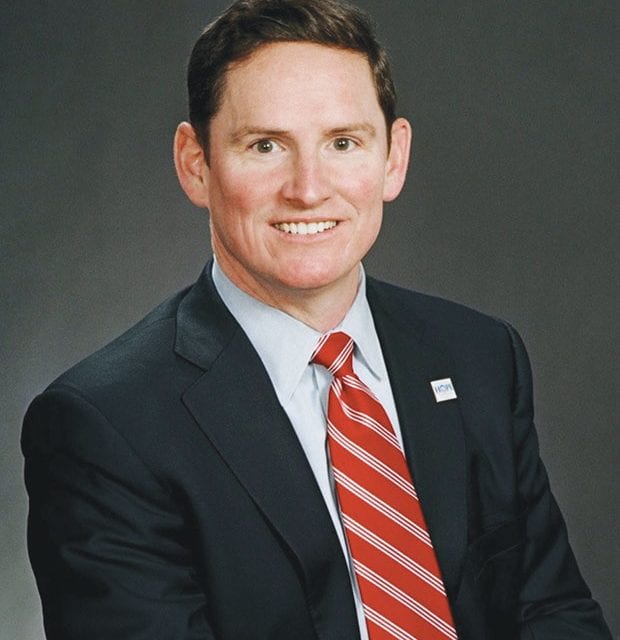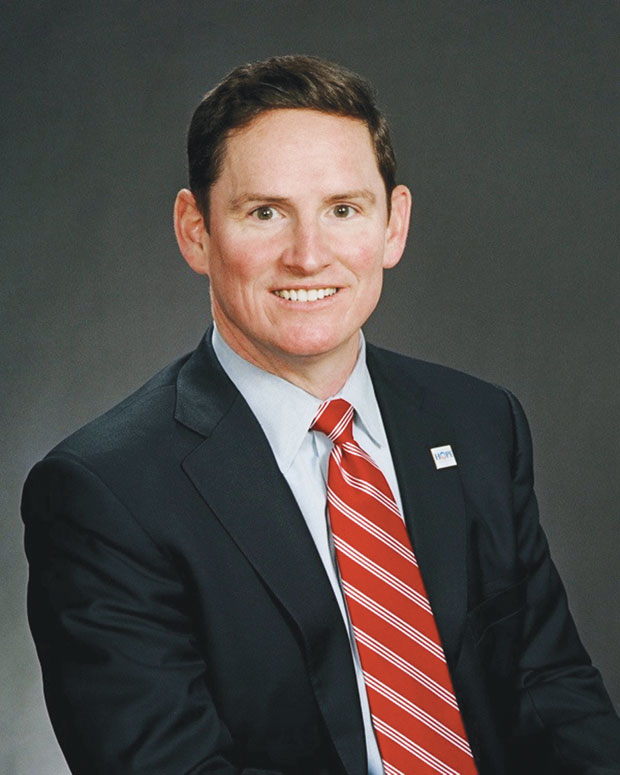No county employees have enrolled in hard-fought plan in 10 months since it began, but Judge Jenkins says plan won’t change soon
After trying for two years to approve domestic partner benefits for Dallas County’s LGBT employees, no one has taken advantage of them since they went into effect in January.
Under the county’s plan employees can enroll their same- or opposite-sex spouse in a voucher program, which reimburses 45 percent of the spouse’s privately purchased insurance plan up to $295.78 monthly — the amount the county contributes toward employees’ coverage — whichever is less.
The voucher plan passed the Commissioners Court last October after County Judge Clay Jenkins spent months trying to go around the Public Employee Benefits Cooperative, a self-insured government partner agency that helps keep the cost of benefits affordable.
While a majority of members from the PEBC supported adding the benefits, members from Tarrant and Denton counties threatened to veto the change, which they could do as founding members. The PEBC is comprised of representatives from Dallas, Tarrant, Denton and Parker counties and the North Texas Tollway Authority.
The board voted down offering DP benefits in 2011 by one vote. Even if the PEBC had approved the benefits last year, each entity’s governing body would then have had to approve the plan before any of them could offer the benefits.
Jenkins has said he’d consider working toward leaving the PEBC so the county could offer equal domestic partner benefits, but he said this week that the path toward changing the plan was far off. Dallas County’s Commissioners Court would have to approve leaving the co-op and give a year’s notice before leaving, so the earliest they could be free to offer the benefits is January 2015.
“It’s an increasing challenge for a wide sector of the political spectrum to agree on charting a course on health benefits,” Jenkins said. “And I favor us finding a path that will allow us to provide the best quality insurance to our employees at the best price for the taxpayers that also factors in and promotes our shared progressive values here in Dallas County.”
Julia McDuff, a spokeswoman with the county’s Human Resources, said this week that none of the county’s roughly 6,000 employees had enrolled in the domestic benefits program.
By comparison, Parkland’s DP benefits took effect in January 2012, and 21 of the hospital’s 9,408 employees enrolled in the program within the first six months.
Jenkins said the enrollment could change in the future as private insurance becomes more affordable when the Affordable Care Act goes into effect next year. He said there are many reasons that no one has used the benefits voucher yet, among them cost and coverage.
“There is a big difference between what you can actually get for your family by paying a portion of your spouse’s benefits under our policy and what an individual with supplemental domestic partner voucher can get on the open market,” he said. “That’s why I’d like to see us move in a direction that allows equal benefits for same-sex partners equal to the benefits available to spouses.”
The county’s plan came under review by officials over the summer after Attorney General Greg Abbott issued a non-binding opinion that governmental entities offering domestic partner benefits violated the state’s constitutional marriage amendment.
But Jenkins said the review found that no changes needed to be made and he hopes that after that hiccup employees will be encouraged to enroll in case they feared the benefits would be threatened.
“There will be no watering down of our policy based on the attorney general’s opinion,” Jenkins said. “I do hope that we get to a place in Dallas County where we can offer full benefits, not just vouchers.”
Lesbian activist Cd Kirven said the county should seriously consider leaving the PEBC in the future in order to have more equal benefits.
“I feel like that co-op is not only hindering healthcare for LGBT families and children but it’s also kind of fostering the homophobic atmosphere,” Kirven said. “There should be a community action taken against the co-op to let them know that this subversive attack on
LGBT workers and children will not be tolerated.”
Rafael McDonnell, communications and advocacy manager at Resource Center, said the enrollment highlights the minimal amount of employees who actually use health benefits when the estimated number that’s originally budgeted is much higher. Still, he said the turnout was a shock.
“Zero is a surprising number,” he said. “I would have expected at least a handful.”
McDonnell said the voucher aspect of the program makes it more difficult to use versus other DP benefits programs that allow partners to be added to an employee’s plan.
He said the county should work on promoting the plan to employees, as well as consider leaving the PEBC to be self-insured on its own so the county can have different DP benefits.
“I wouldn’t construe the lack of people signing up with the lack of demand,” McDonnell said.
For more information about Dallas County’s DP benefits plan, visit DallasCounty.org/department/HR/domestic.html
This article appeared in the Dallas Voice print edition October 18, 2013.



